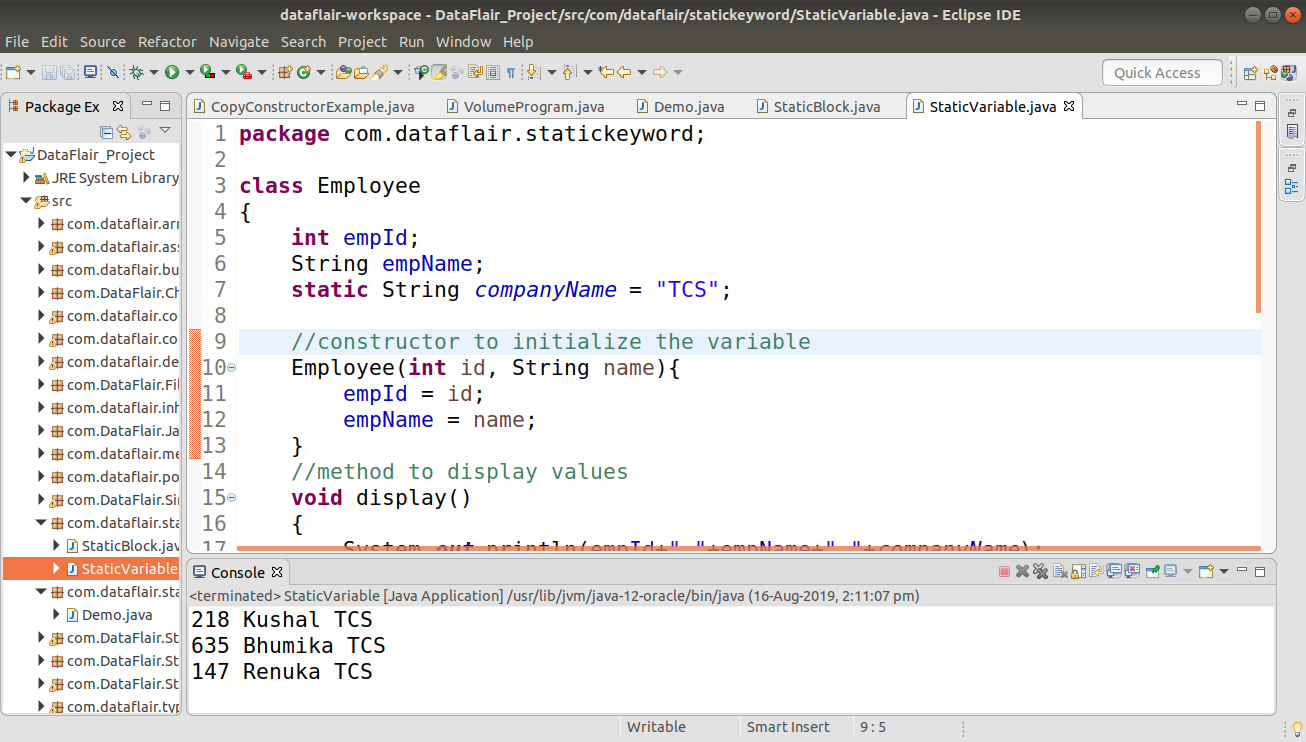
Java Static Keyword Master the Concept of Static Methods in Java DataFlair
public class VolatileTest { private static final Logger LOGGER = MyLoggerFactory.getSimplestLogger (); private static volatile int MY_INT = 0; public static void main (String [] args) {

Java Volatile Keyword With Examples KnpCode
A Non-Intuative Volatile Feature. volatile on the singletons INSTANCE field is recommended whenever the singleton contains mutable state and is created using the double-checked locking idiom. So.
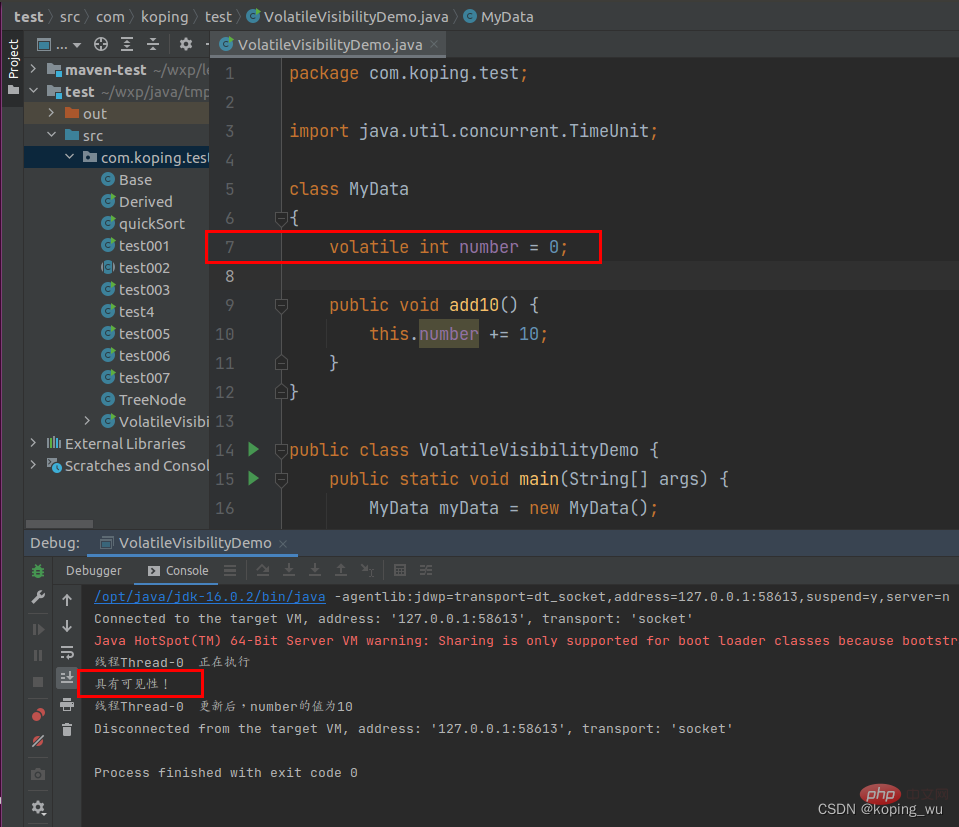
Java基础之volatile详解站长资讯网
Short answer: volatile is a keyword we can apply to a field to ensure that when one thread writes a value to that field, the value written is "immediately available" to any thread that.
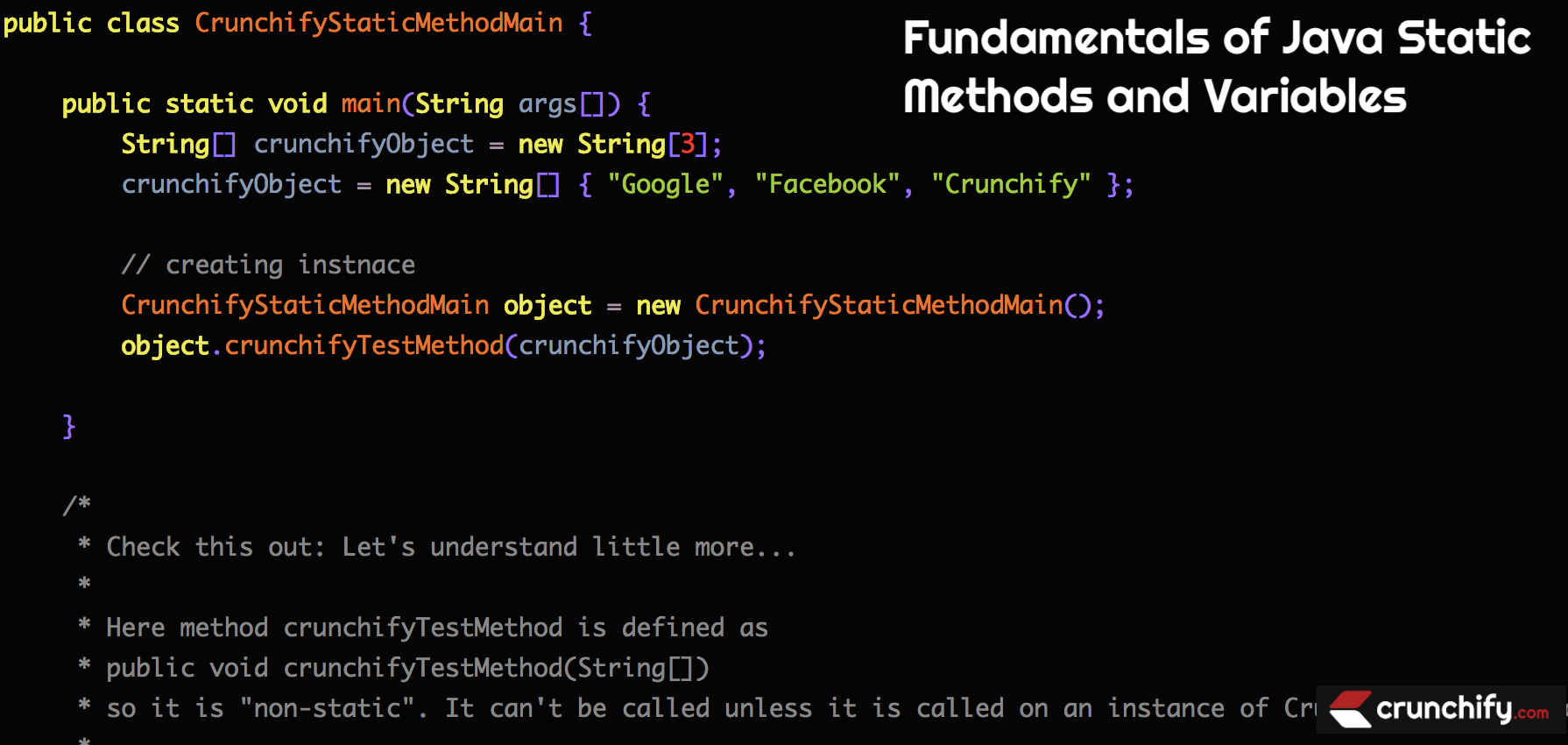
Fundamentals of Java Static Method, Class, Variable and Block • Crunchify
Using volatile forces all accesses (read or write) to occur to the main memory, effectively not caching volatile in CPU. This can be useful for the actions where visibility of the variable is important and order of accesses is not important. In above example just replace . static int c; with static int volatile c; New class:

Java volatile vs atomic variables Studio Freya
When we make the variable volatile the values are always read from the main memory and written to the main memory so it is visible to other threads. volatile long someLongValue = 0L; void assign (long value) {. someLongValue = value; // Writes are made to main memory. }
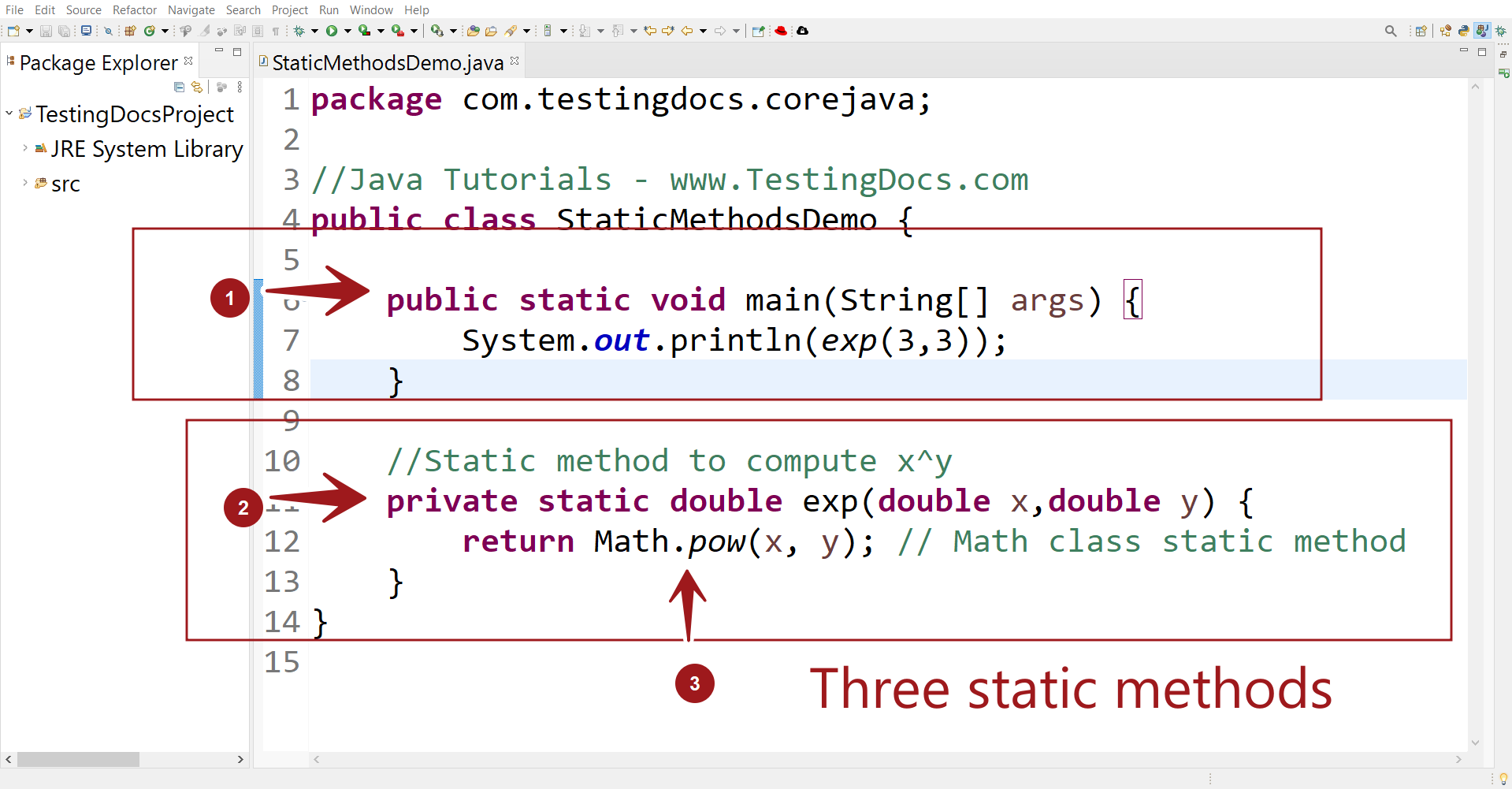
Java static methods
9 Answers Sorted by: 397 Declaring a static variable in Java, means that there will be only one copy, no matter how many objects of the class are created. The variable will be accessible even with no Objects created at all. However, threads may have locally cached values of it.
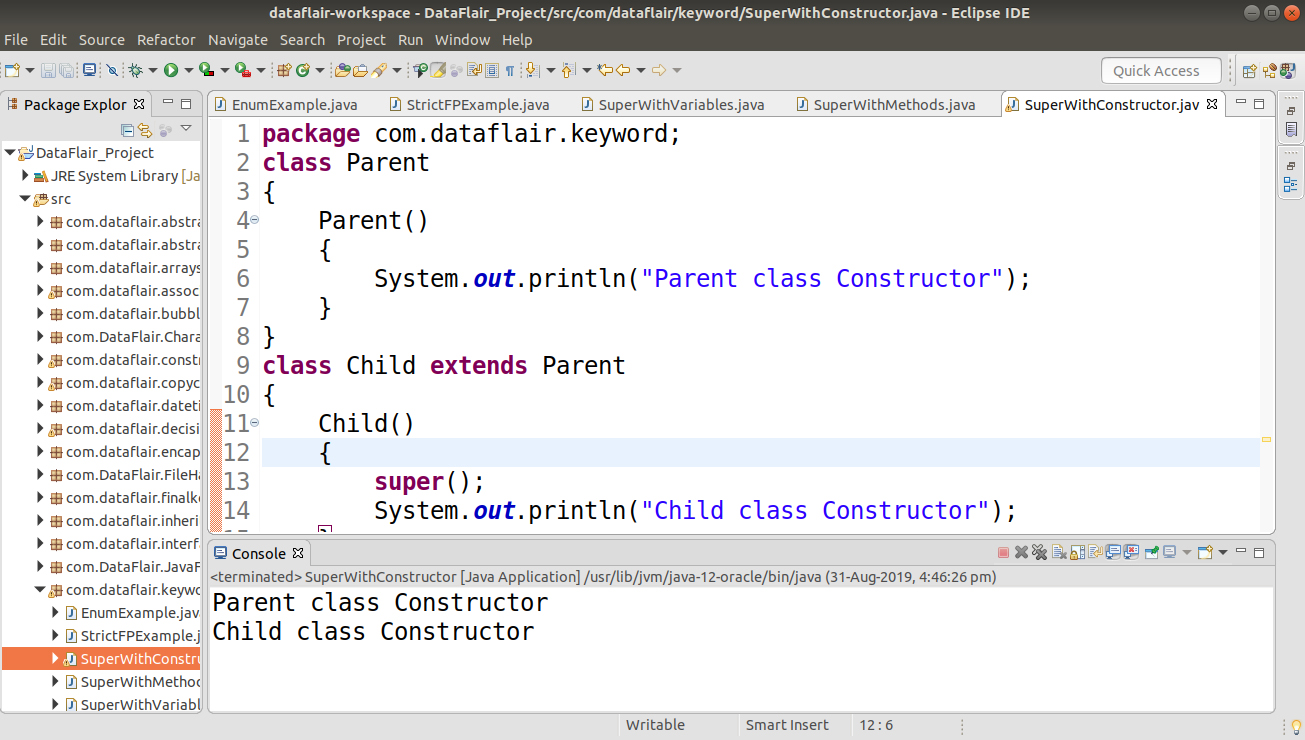
Java Language Keywords Abstract, Super, Static, Volatile Keywords DataFlair
Photo by Paul Summers on Unsplash. The Java language specification defines volatile as follows:. In the Java programming language, threads are allowed to access shared variables. To ensure that.

Volatile Keyword in Java With Examples
The Java volatile keyword is used to mark a Java variable as "being stored in main memory". More precisely that means, that every read of a volatile variable will be read from the computer's main memory, and not from the CPU registers, and that every write to a volatile variable will be written to main memory, and not just to the CPU registers.
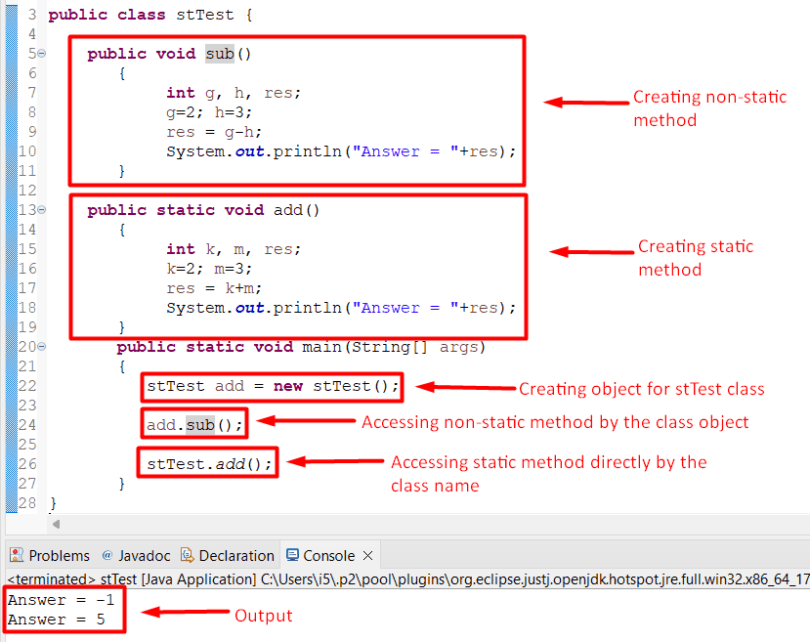
What Is a Static Method In Java?
What Is a volatile Variable? Unlike other variables, volatile variables are written to and read from the main memory. The CPU does not cache the value of a volatile variable. Let's see how to declare a volatile variable: static volatile int count = 0; 3. Properties of volatile Variables

Java Static Method, Static Variable and Block with Example JAVA Programming JAVA Tutorial
the WHY: The volatile keyword in Java is used to mark a Java variable as "being stored in main memory". Every thread that accesses a volatile variable will read it from main memory, and not.
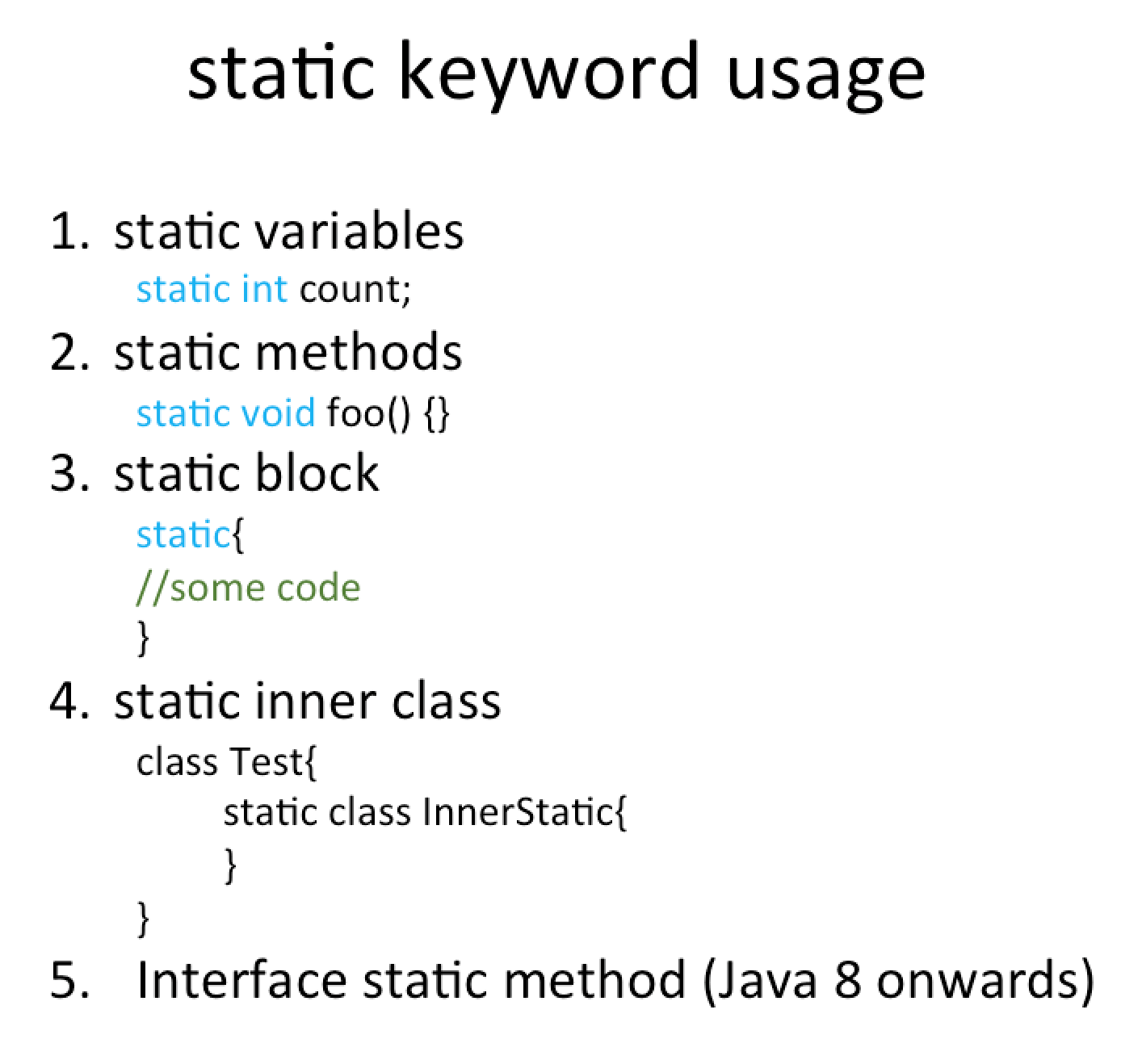
static keyword in java DigitalOcean
volatile transient native 1. static: The static keyword means that the entity to which it is applied is available outside any particular instance of the class. That means the static methods or the attributes are a part of the class and not an object. The memory is allocated to such an attribute or method at the time of class loading.
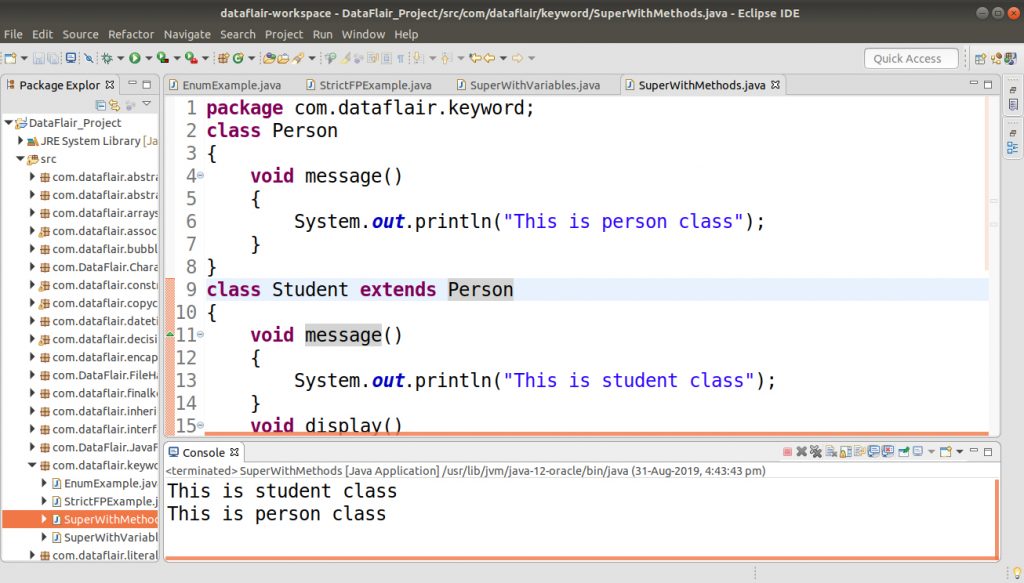
Java Language Keywords Abstract, Super, Static, Volatile Keywords DataFlair
Static vs Volatile in Java Posted on October 4, 2015by জাহিদ Declaring a static variable in Java, means that there will be only one copy, no matter how many objects of the class are created. The variable will be accessible even with no Objects created at all. However, threads may have locally cached values of it.

Java Volatile Variables Introduction YouTube
Volatile vs Static in Java Declaring a static variable in Java, means that there will be only one copy, no matter how many objects of the class are created. The variable will be accessible even with no Objects created at all. However, threads may have locally cached values of it.

Java Volatile Variables Example Application YouTube
1. Overview In this tutorial, we'll explore the static keyword of the Java language in detail. We'll find out how we can apply the static keyword to variables, methods, blocks, and nested classes, and what difference it makes. Further reading: The "final" Keyword in Java

volatile关键字怎么在Java中使用 开发技术 亿速云
The volatile Keyword. The volatile keyword marks a variable as, well, volatile. By doing so, the JVM guarantees that each write operation's result isn't written in the local memory but rather in the main memory. This means that any thread in the environment can access the shared variable with the newest, up-to-date value without any worry.
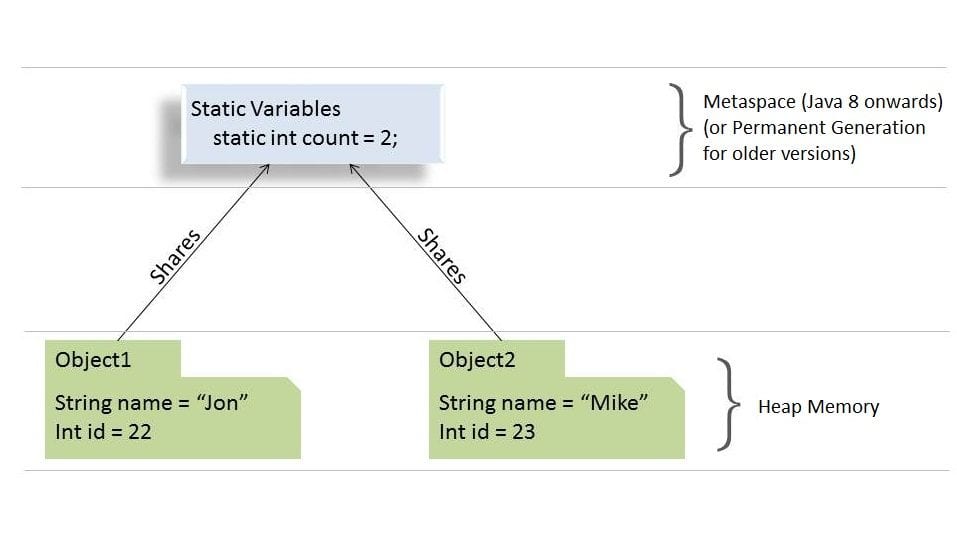
A Guide to the Static Keyword in Java Baeldung
Volatile keyword is used to modify the value of a variable by different threads. It is also used to make classes thread safe. It means that multiple threads can use a method and instance of the classes at the same time without any problem. The volatile keyword can be used either with primitive type or objects.